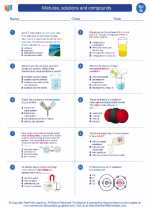Coal: An Introduction
Coal is a combustible black or brownish-black sedimentary rock formed from the remains of ancient vegetation. It is a major source of energy and is used to produce electricity and heat. There are four main types of coal: lignite, sub-bituminous, bituminous, and anthracite, with each type having different carbon content and energy value.
Formation of Coal
Coal is formed from the remains of plants and trees that lived millions of years ago. These organic materials undergo a process called coalification, where they are buried under layers of sediment and subjected to high pressure and temperature. Over time, the organic matter is transformed into peat, then into different types of coal as the process continues.
Uses of Coal
Coal has been used for centuries as a fuel for heating and cooking. In modern times, it is primarily used to generate electricity in power plants. Coal is also used in the production of steel and cement, as well as in various industrial processes.
Environmental Impact
While coal is a valuable source of energy, its extraction and combustion have significant environmental impacts. The burning of coal releases greenhouse gases, such as carbon dioxide, into the atmosphere, contributing to global warming. Coal mining can also lead to habitat destruction, water pollution, and other ecological concerns.
Study Guide Questions
- What are the four main types of coal and how do they differ in terms of carbon content and energy value?
- Describe the process of coal formation and the stages involved in coalification.
- What are the primary uses of coal in modern society?
- Discuss the environmental impact of coal mining and combustion.
- What are some alternative sources of energy that could reduce our reliance on coal?





